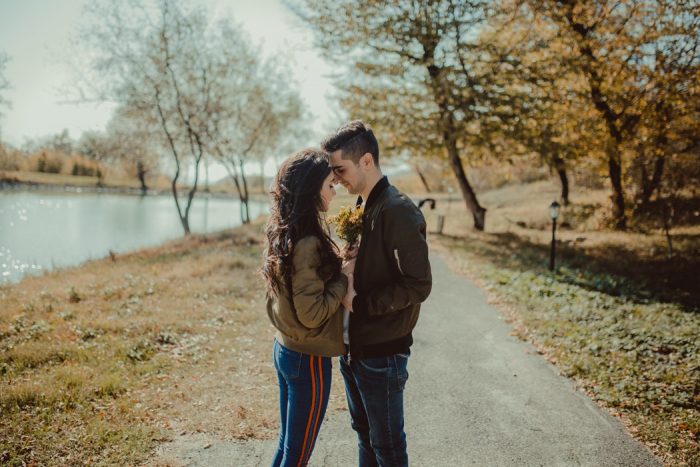“Envy is spoiling.”
These were the opening lines of my post-graduate training in psychology.
Prior to this, I probably always experienced my own and others’ feelings of envy but never gave much thought to them as an actual emotional process that I ever needed to truly unpack. I was always surrounded by many people who were over-excelling academically, always chasing one qualification after the other, getting married, having families, purchasing one property investment after the other, or enjoying one oversea trip after the other.
So envy in itself was a familiar emotion. In the Klein school of psychology, envy is described as “the angry feeling that another person possesses and enjoys something desirable, often accompanied by an impulse to take it away or spoil it.”
What I often found in myself and those who were envious people was that the anger was rarely overt; in fact, it often came across as “Look at how many things I can achieve,” or “I really want you to know that I’m really happy for you,” or “I’m so happy for you, but I want to do that too.”
Envious people can be extremely competitive. To be overtly envious is difficult for many to admit to. There are a few who on the surface gush with praise for others, because it’s the polite thing to do, but who quickly and quietly resort to wishing they could be or have more of what the other has. Quietly, because heaven forbid they could be seen as being consumed with so much furious energy so as to hate, destroy, steal, or even spoil someone else’s moments of happiness.
What Klein was referring to were no ordinary descriptions of envy. Bertrand Russell described envy as a significant and potent cause of unhappiness, which, when experienced, could lead to wanting to inflict a certain level of misfortune on another—not just as a wishful fantasy but an actual violent, criminal fulfilment of that fantasy.
Envy has an impact on the person being envied, and it has an impact for those experiencing envy. Often when you have genuinely experienced something that is good and is shared with others, their sarcastic remarks or comments about their own successes or yours can leave you feeling hurt and even puzzled. This is hostile envy.
Or, on the other hand, you could spend time scrolling social media and view posts of other people’s success and feel low. This is depressive envy. Most writers who talk about envy hardly ever describe it as an emotion that is easy to sit with. It often is associated with anger, hostility, irritability, restlessness, and a great sense of sadness. All of these emotions are difficult to tolerate for long periods of time.
Yes, envy is a normal part of human experiences, but it’s never easy to admit to by the ones being envied or the ones being envious.
At the heart of depressive envy is the belief that you are not enough. You are not enough as a writer, you are not enough being childless, you are not enough because you’re unattractive, you are not enough because you are single, you are not enough as a mother, and you are not enough as a human being—full stop.
Depressive envy can lead to hostile envy, which can be extremely toxic to self and others. You become obsessed with the other person(s), trying to keep ahead of them in areas you feel you can exceed them in, you become judgemental of others, you miss out on opportunities and different life paths for yourself, but, more importantly, your life feels hopeless. Ultimately, constantly comparing yourself with others will lead to feelings of inadequacy.
For me, envy takes one further away from your unique path and authenticity. It also has no real freedom, because you are eternally chained to the ones you are envious of. We are all not meant to be the same. We each are on our own journeys, even when we cross or touch briefly. Contentment comes from being grateful for all we already have, had, and will have in this life. The antithesis of envy, according to Klein, is gratitude.
Gratitude is a powerful act of being able and willing to acknowledge with full awareness of the good things that happen to you. When I’m grateful, I feel full and satisfied. I feel that for who I am in this moment, I have all that is beautiful. Yes, I could want a mansion by the beachside, but I am comfortable and warm and protected from the harsh realities of sleeping in my car, park bench, and urine-stenched alley, and being permanently homeless.
The world will never be equal. There are always opportunities for envy to arise. However, the spoiling nature of envy costs a lot to allow this emotion to take root in your life. The research is demonstrating that having an attitude of gratitude is actually considered a good health choice. Gratitude requires little time, ability, or money to exercise.
A life of gratitude softens us, and it provides us with a gentle predisposition. This gives off an attractive energy around others. If you are truly grateful, there’s no real space for discontentment and restlessness. You magnify and magnetise that energy toward yourself. You have a knowingness about you. It is quiet but powerful. You know that everything is about timing and seasons.
Gratitude makes us better people in relationships. Genuinely grateful people, who exude kindness and say thank you and appreciate others in their lives and value relationships.
Social connectedness is a primary factor in promoting longevity in life. I don’t know about you, but I love being around genuine, loving people and sharing close connections. I often leave friends feeling blessed, satisfied, and richer for knowing them.
When we are grateful, we reduce the level of negativity and toxicity in our environments. When people whinge and complain endlessly about their situation, doing little to change it, it’s difficult to feel endearing toward them. They are a black hole, and they suck you down into that hole with them.
When you are grateful amidst your challenges, when you can develop a sense of humour (not mania or hysteria), then your mood will lift and you transform your moment. There’s a pleasant reassurance in our gratitude that this state of challenge or dis-ease is never permanent.
When we are grateful, we are open to possibilities and we realise that problems can be solved in a variety of ways. We remain open to learning, and we can have a completely different experience to be gained. Sometimes the things we fixate on that are fuelled by envy—“If I achieve or have this, then I will be…”—are limiting and often lead to more misery and emptiness. Sometimes the plans we have to ensure our happiness are so tightly constructed that we leave little room for other options and possibilities.
I believe that leaving space is important, because it is in the space that the magic happens. Your authenticity is given the opportunity to shine in a way you never knew it could. Or, better yet, you could meet people who inspire you in such an amazing and profound way that you are forever altered. That’s gratitude—the direct opposite of envy. It’s freeing, and you can always learn, always change course, and, more importantly, because you’re not attached to future plans, you can remain open to real magic.
So the next time you feel the emotion of envy around you or in you, pause in gratitude and ask yourself, “What can I appreciate in this moment, in myself, in the other, and in the moment we are sharing together?”
Gratitude is an attitude; it’s not an emotion. More especially, you can choose gratitude over envy.
I have been unpacking my feelings of envy with a greater sense of awareness. Gratitude is my act of mind, body, and spirit that is filling and satisfying, and it is the choice of path I would prefer for my life, because I know with all my heart that it will lead to my best authentic life and a life I would not want to exchange for anybody else’s.
~
Dedicated to my soulful friend, Cherli, who sees even a beach trip down the road like being transported to Hawaii. You have always taught me gratefulness, and for that, I thank you.


 Share on bsky
Share on bsky





Read 0 comments and reply